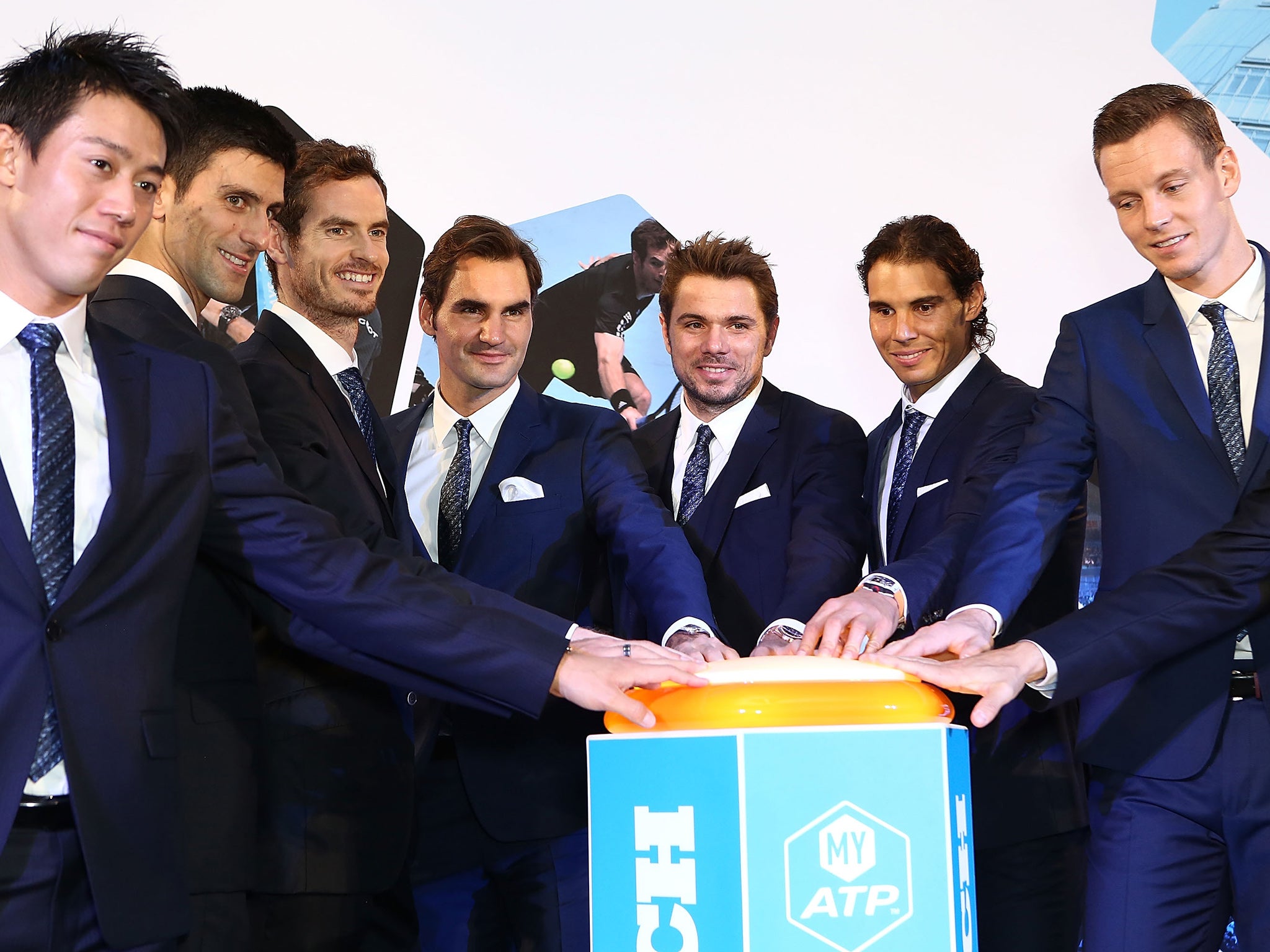ATP World Tour Finals 2015: Roger Federer calls for stricter tennis drugs testing to preserve sport's image
The Swiss believes all players who reach the quarter-finals of tournaments should be automatically tested

Your support helps us to tell the story
From reproductive rights to climate change to Big Tech, The Independent is on the ground when the story is developing. Whether it's investigating the financials of Elon Musk's pro-Trump PAC or producing our latest documentary, 'The A Word', which shines a light on the American women fighting for reproductive rights, we know how important it is to parse out the facts from the messaging.
At such a critical moment in US history, we need reporters on the ground. Your donation allows us to keep sending journalists to speak to both sides of the story.
The Independent is trusted by Americans across the entire political spectrum. And unlike many other quality news outlets, we choose not to lock Americans out of our reporting and analysis with paywalls. We believe quality journalism should be available to everyone, paid for by those who can afford it.
Your support makes all the difference.Tennis has largely steered clear of the drugs scandals that have plunged other sports into crisis, but as the world’s top eight players gathered for next week’s season-ending Barclays ATP World Tour Finals there were calls for more stringent testing and greater transparency in anti-doping procedures.
Although the sport has increased the number of tests, both in and out of competition, in recent times, most of the leading players believe that more can be done. Roger Federer said he had been tested out of competition this year “maybe five times” and “many more times” at tournaments, but thinks there should still be more testing “across the board”.
In particular, Federer believes that all players who reach the quarter-finals of tournaments – “whenever the [ranking] points become important and the money becomes important” – should be automatically tested.
“Players need to feel that there are going to be tests often, shying them away from any stupid thought they might be having,” he said. “I don’t understand how sometimes you can have a run and win a couple of events and you haven’t been tested. It just can’t be that way.
“I’m always surprised when I win a tournament, I walk off the court and I’m like: ‘Where’s the doping guy?’ And it shouldn’t be that the guy [only tests] the finalists. I don’t get that part either. I hope that in the future it’s going to be better, to preserve the good, clean image of our sport.”
Federer supported the principle of freezing samples for possible future testing. “I’m talking years, not just weeks and months. That’s how you scare off people.”
The current drug-testing programme, administered by the International Tennis Federation, is believed to cost £3m a year. Andy Murray believes that with so much money now available within the sport, more should be spent on drug-testing.
“I do think that the more money that’s invested, it gives you a better chance of catching everyone that’s cheating and gaining the trust of the public as well, which I think across sport in general is fading,” Murray said. “It seems like every week something new is coming out, and across a variety of different sports. We just hope that tennis can remain as clean as possible.”
However, Murray added that having more drugs tests would not necessarily weed out the cheats, pointing out that the cyclist Lance Armstrong had often said he was the most tested athlete and had never failed a test. “It doesn’t necessarily guarantee anything,” Murray said.
Rafael Nadal said that in the light of the Russian doping scandal that broke this week, all sports needed to remain vigilant. Although the Spaniard said that he had never suspected any of his opponents of drug-taking, he called for greater transparency in anti-doping procedures.
“The only thing that would be great is if, one day, we made the results 100 per cent public,” Nadal said. “We don’t know if [we as individuals] have had 10 or 12 or 20 tests this year. So then people ask: ‘Are the controls enough or not enough?’ You ask these questions because you don’t really know how many tests I have done – or Andy or Roger or anyone else.”
Novak Djokovic pointed out that tennis had largely remained free of drugs scandals and said he believed current testing worked well. “I think they are randomly selecting the players and the locations where they are going to test the players. I’m always available. They know where I am. I’m not hiding anything, so if any testers come to me I think it’s fair enough.”
Join our commenting forum
Join thought-provoking conversations, follow other Independent readers and see their replies
Comments